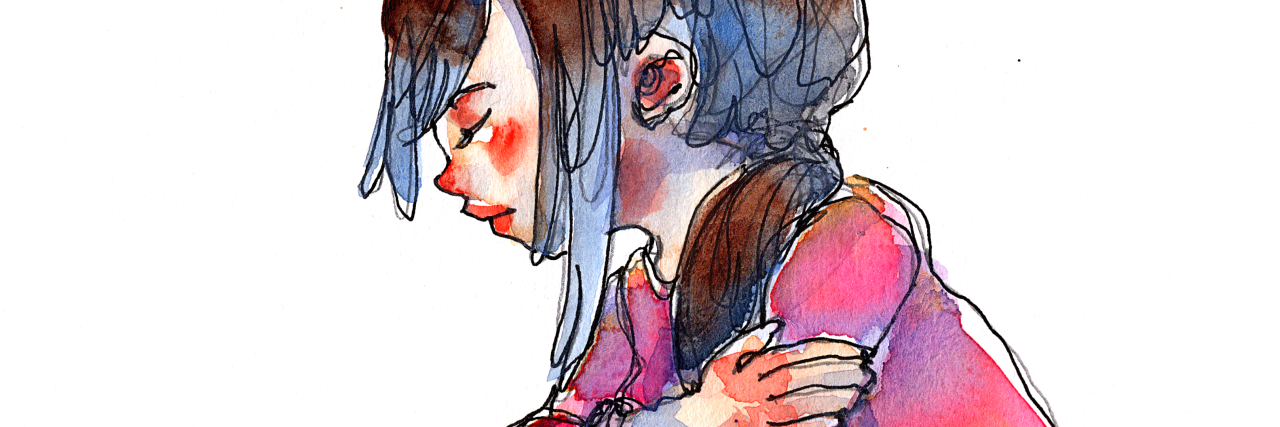Editor’s note: If you struggle with self-harm, the following post could be potentially triggering. You can contact the Crisis Text Line by texting “START” to 741-741. For a list of ways to cope with self-harm urges, click here.
Depression. This misunderstood and often-debilitating disorder is perhaps one of the most stigmatized of mental disorders.
How can you be depressed when your life is so perfect?
But you’re always so funny and cheerful — you can’t be depressed!
Depressed people cry all the time and sleep all day — you’re always so busy and active.
People who say they’re depressed are just lazy. They’re not trying hard enough.
Sometimes you have to choose happiness.
These thoughts are quite familiar to me. In fact, they’re lies I’ve repeated to myself daily for years.
Years of denial, pain, isolation, self-loathing, anger and wishing to escape feelings I didn’t believe I had any right to feel.
Now, after close to eight months of therapy — therapy I reluctantly added to my routine for generalized anxiety that I thought was well-controlled by an SSRI — I’ve come to realize that the years of intense self-criticism, fear of failure, guilt for being so quick to upset and snap at my loved ones and shame for my perceived shortcomings is not simply my personality. It’s real, life-altering, often-suffocating depression.
Oddly enough, though, it wasn’t the vocal inner critic, the overwhelming desire to “just sleep” or “not exist” for an undetermined amount of time, or the secret self-harming ritual that seemed to be my only emotional release and calming mechanism that convinced me of my depression.
It was the physical.
The heaviness of my head and limbs — and soul — that felt like a boulder-filled backpack weighing me down every single day.
The exhaustion from poor sleep (and even adequate sleep) and the mental fortitude required to get out of bed each day because I had responsibilities to fulfill and a family to support.
The muscle aches and constant tension in my shoulders, neck, and back and the inability to concentrate or relax, even with monthly massages and regularly programmed self-care in the form of walking meditation and exercise.
The perpetual, physical urge to cry — but tears that would never come because it was second-nature to hold them back while plastering a smile on my face.
The new-to-me headaches and the ever-present knot in my stomach that made breathing seem like a triumph.
It was feeling like a zombie — like a broken-down, bruised and drowning zombie — it was this that truly convinced me I was depressed and not just a weak or selfish person.
While many individuals living with clinical depression exhibit the typical symptoms, many of us live with “high-functioning” depression, invisible to the world around us.
Call us chronic overachievers or masterful actors, but we live our seemingly comfortable and stable lives with an inner turmoil that very few people are privy to.
Unless we recognize the signs within ourselves, we often continue our double-lives, never seeking help from a therapist or doctor.
So many mental health warriors are working to erase the stigma of mental illness and mood disorders, but we still have a long way to go.
In order to make further strides, we have to be compassionate to ourselves. We have to recognize when the emotional struggle and physical suffering are too much to handle on our own. And we have to be fearless in admitting when we have a problem that’s beyond our control.
Despite what my mind told me for years, depression isn’t a dirty word. It’s physically and emotionally draining at times, but it’s something I can — and will — conquer now that I’ve admitted the truth and enlisted the help of a professional.
If you or someone you know needs help, visit our suicide prevention resources page.
If you need support right now, call the National Suicide Prevention Lifeline at 1-800-273-8255 or text “START” to 741-741.
We want to hear your story. Become a Mighty contributor here.
Getty Images photo via Archv

